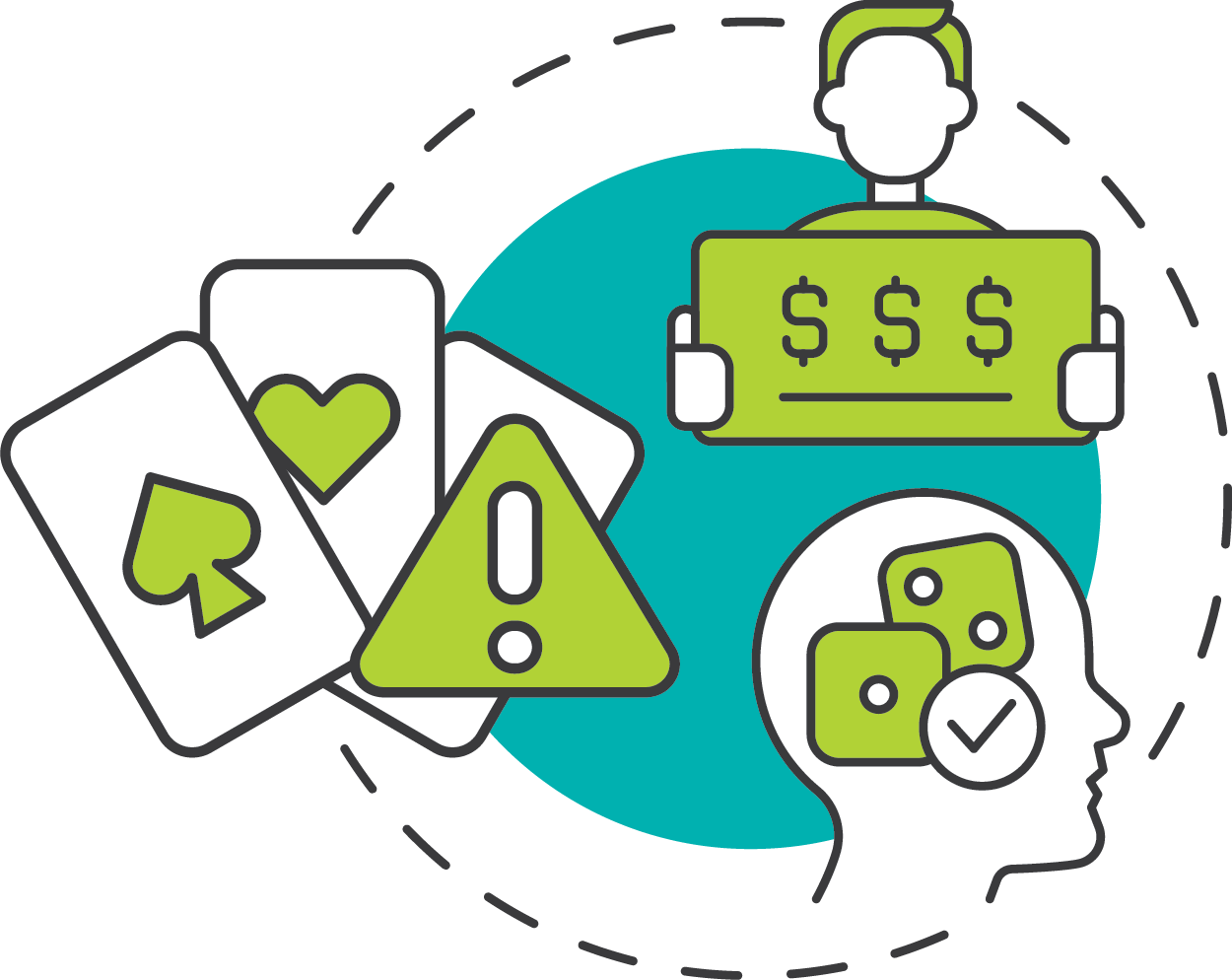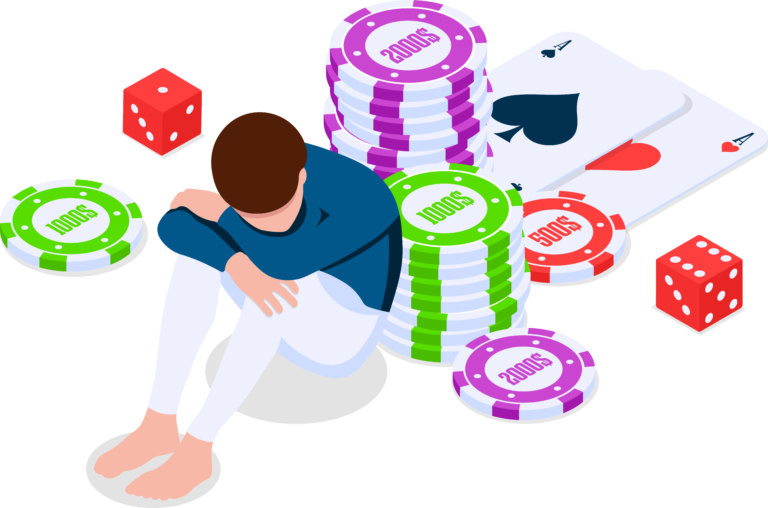What is Gambling?
Gambling happens when you play games of chance or skill and risk something you value in the hope of getting something of even greater value. Gambling always has two things in common – risk and an unknown outcome.
Did you know?
There are two types of games: games of chance (like the lottery or slot machines) and games of skill (like poker or sports betting). Males more often play games of skill. But do not be fooled by this! No matter how much skill you have or how much you practice, the odds are not in your favour.


Problem Gambling?
Gambling becomes problematic when a person keeps playing despite negative consequences. They are often unable to set or maintain limits related to both time and money. They may neglect their other responsibilities like school or work, experience changes in their mood, or withdraw from friends and family.
Gambling stimulates the reward system in the brain, similar to substances like drugs and alcohol. Over time the brain can become dependant on gambling because of this chemical reaction. Gambling problems can affect many areas of life; it is not just about losing money. Problem gambling can have a negative impact on goals, academic or professional life, physical and mental health, and personal relationships.
Know the Risks
- Avoid gambling when you are upset or stressed.
- Avoid gambling to escape feelings or boredom.
- Mixing gambling and substance use can increase risk.
- Avoid borrowing or stealing money to play.
Did you know?
People aged 18 to 24 are more likely to engage in risky gambling behaviours. The part of your brain that controls emotion and logic is not fully developed until you are 24 or 25. As a result, young adults are more likely to take risks or to act impulsively. Being male also increasing the risk of developing a problem with gambling.
Set Limits
- Set time limits.
- Bet only what you can afford to lose.
- Balance gambling and other healthy and fun activities.
Did you know?
Knowing more or playing more often will not guarantee a win. Wins may happen but they are impossible to predict. Gambling is not a way to make money and over time you will lose money.
Tips for speaking with youth about problem gambling:
- Choose the right time: Initiating conversation after seeing a commercial about gambling, during a casual walk, on the couch following a Netflix show, or washing the dishes after a meal are all excellent opportunities to begin the discussion.
- Listen:When discussing issues, it is important to actively listen, young people will be more receptive to the message if it is conversational. Males tend to respond better to -shoulder to shoulder- discussions not face to face so going for a drive or being active in an activity they enjoy like hockey is likely to have better results.
- Keep it short:short conversations will drive the message home. Long winded lectures may have young people tuning out before too long. Avoid taking every opportunity for a “teachable lesson”- it can backfire.
- Be relevant:Tailor the conversation to their interests. For example: If they enjoy playing video games, consider discussing eSports

Starting the conversation with someone you know:
If you believe someone in your life is struggling with problem gambling; check out these tips of how to start a conversation:
- In person is best, but texting is a good start.
- Talk to them about what you observe.
- Listen to their feelings and opinions.
- Ask if they know the risks or explain them.
- And let them know that there’s help out there, like websites and even addiction counsellors.
- For CHL players, coaches, staff members, and billets, you can also reach out to your local CMHA mental health coach or other resources available through your league
Reach Out for Support
If you are not sure if you if your gambling is a problem, try this quick self screener.
Problem gambling has consequences and, talking to someone about options can help you decide what type of support is right for you. Take the first step by talking to your CMHA (Canadian Mental Health Association) Mental Health Coach, they can provide resources and support. Check out the links below for more information or to find help in your community.
Call a Helpline
Toll Free Gambling Help Phone Numbers
- British Columbia Problem Gambling Help Line
1-888-795-6111 - Alberta Addiction and Mental Health Helpline
1-866-332-2322 - Saskatchewan Problem Gambling Helpline
1-800-306-6789 - Manitoba Addictions Help Line – Problem Gambling
1-800-463-1554 - Ontario Connex Ontario Help Line
1-866-531-2600 - Quebec Gambling: Help and Referral
1-800-461-0140 - New Brunswick Gambling Information Line
1-800-461-1234 - Nova Scotia Problem Gambling Help Line
1-888-347-8888 - Prince Edward Island Problem Gambling Help Line
1-855-255-4255
Help for U.S. Residents
Call the National Council on Problem Gambling 1-800-522-4700 or speak to a counsellor via Webchat.
© 2023 talktoday.ca

